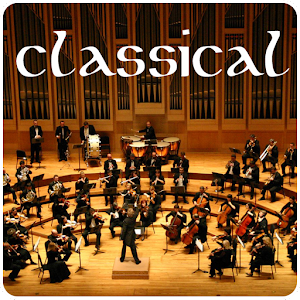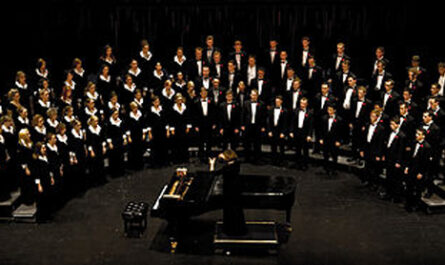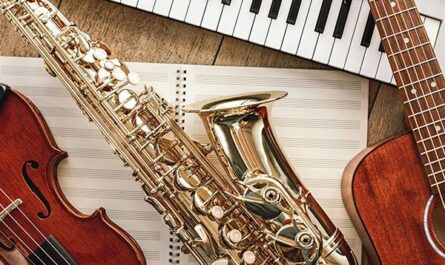The History of Classical Music
Classical music is a genre of music that has been around for centuries and is enjoyed by millions of people around the world. In this article, we will explore the history of classical music, the most famous classical composers, the different types of classical music, the impact of classical music on contemporary music, the benefits of listening to classical music, how to listen to classical music, classical music education, and classical music and culture.
Classical music is a genre of music that has been around for over 500 years. It is characterized by its complexity, structure, and the use of a wide range of musical instruments. The term “classical music” refers to music that is written in a specific style and form, which was developed in Europe during the Classical period, from the mid-18th century to the early 19th century.
Classical music is an important part of the world’s cultural heritage and has influenced many different styles of music. It is enjoyed by people of all ages and backgrounds and has a wide range of benefits, including reducing stress and anxiety, improving concentration and focus, and boosting creativity and productivity.
Origins of Classical Music
The origins of classical music can be traced back to the Middle Ages when music was primarily used for religious purposes. During this time, music was written for the Catholic Church and was primarily vocal, with instruments being added later.
As music began to evolve, composers started experimenting with different musical forms and styles. This led to the development of polyphonic music, which is music that has two or more independent melodic lines. This was an important development in the history of classical music, as it allowed for greater complexity and depth in compositions.
Development of Classical Music over the Centuries Origins of Classical Music
Classical music continued to evolve over the centuries, with different styles and periods emerging. The Baroque period, which lasted from the early 17th century to the mid-18th century, was characterized by its ornate, complex compositions and the use of instruments such as the harpsichord and organ.
The Classical period, which followed the Baroque period, was characterized by its simpler, more elegant compositions and the use of instruments such as the piano, violin, and cello. This period saw the emergence of famous composers such as Wolfgang Amadeus Mozart and Ludwig van Beethoven.
The Romantic period, which lasted from the early 19th century to the early 20th century, was characterized by its emotional, expressive compositions and the use of instruments such as brass and woodwind instruments. This period saw the emergence of famous composers such as Franz Schubert and Frederic Chopin.
Styles and Periods within the Genre
Classical music is a vast genre that encompasses many different styles and periods. Some of the most well-known styles and periods within the genre include:
- Baroque music: characterized by its ornate, complex compositions and the use of instruments such as the harpsichord and organ.
- Classical music: characterized by its simpler, more elegant compositions and the use of instruments such as the piano, violin, and cello.
- Romantic music: characterized by its emotional, expressive compositions and the use of instruments such as brass and woodwind instruments.
- Modern music: characterized by its experimental, avant-garde compositions and the use of electronic instruments.
The Characteristics of Classical Music
Musical Instruments Used in Classical Music
Classical music is characterized by the use of a wide range of musical instruments, including orchestral instruments such as the violin, cello, and trumpet, as well as keyboard instruments such as the piano and harpsichord. Other instruments commonly used in classical music include the flute, clarinet, and oboe.
Musical Structure of Classical Compositions
Classical compositions are characterized by their structure, which typically consists of several movements that are played one after the other. Each movement has a specific musical form, such as sonata form or rondo form, and is characterized by its own unique melody and harmony.
Emphasis on Melody and Harmony
Classical music places a strong emphasis on melody and harmony, with composers often using complex harmonic progressions and melodic lines to create rich, textured compositions. This emphasis on melody and harmony is one of the defining characteristics of classical music.
Dynamics and Timbre in Classical Music
Classical music also places a strong emphasis on dynamics and timbre, with composers using a wide range of dynamic markings to indicate the volume of the music and a wide range of timbres to create different moods and emotions within a composition.
The Most Famous Classical Composers
Classical music has produced many famous composers who have had a significant impact on the genre and on music as a whole. Some of the most famous classical composers include:
- Johann Sebastian Bach: a German composer and musician who is widely regarded as one of the greatest composers of all time.
- Wolfgang Amadeus Mozart: an Austrian composer who is known for his elegant, sophisticated compositions.
- Ludwig van Beethoven: a German composer who is known for his powerful, emotional compositions.
- Franz Schubert: an Austrian composer who is known for his lyrical, melodic compositions.
- Frederic Chopin: a Polish composer who is known for his virtuosic piano compositions.
- Pyotr Ilyich Tchaikovsky: a Russian composer who is known for his emotional, dramatic compositions.
The Different Types of Classical Music
Classical music is a diverse genre that encompasses many different types of music. Some of the most well-known types of classical music include:
- Opera: a form of classical music that combines music, drama, and dance.
- Chamber music: music that is composed for small ensembles, such as string quartets or trios.
- Symphony: a large-scale orchestral composition that is typically divided into four movements.
- Choral music: music that is composed for choirs, often with orchestral accompaniment.
- Ballet music: music that is composed for ballets, typically featuring a combination of orchestral and vocal music.
- Concerto: a composition that features a solo instrument accompanied by an orchestra.
The Impact of Classical Music on Contemporary Music
Classical music has had a significant impact on contemporary music, with many modern artists drawing inspiration from classical composers and incorporating classical elements into their work. Some examples of contemporary artists who have incorporated classical elements into their work include Bjork, Radiohead, and Kanye West.
Classical music is also frequently used in movies, TV shows, and commercials, with many composers drawing on classical compositions to create emotional and dramatic soundscapes.
The Benefits of Listening to Classical Music
Listening to classical music has a wide range of benefits for both the mind and the body. Some of the most notable benefits of listening to classical music include:
- Reducing stress and anxiety: listening to classical music has been shown to reduce stress and anxiety levels, promoting relaxation and calmness.
- Improving concentration and focus: classical music can help improve concentration and focus, making it a great choice for studying or working.
- Enhancing overall well-being: listening to classical music can help improve mood and overall well-being, promoting feelings of happiness and positivity.
- Boosting creativity and productivity: classical music can help stimulate creativity and productivity, making it a great choice for creative work or brainstorming sessions.
- Improving memory and learning: listening to classical music has been shown to improve memory and learning, making it a great choice for students or those looking to improve their cognitive abilities.
How to Listen to Classical Music
If you’re new to classical music, it can be intimidating to know where to start. Here are some tips for beginners on how to appreciate classical music:
- Start with the classics: begin by exploring the works of famous classical composers such as Bach, Mozart, and Beethoven.
- Listen with an open mind: approach classical music with an open mind and try to appreciate the complexity and beauty of the compositions.
- Attend live performances: attending live classical music performances can be a great way to experience the music in a more immersive way.
- Take your time: take your time when listening to classical music and allow yourself to fully immerse in the music.
Classical Music Education
Classical music education is an important part of preserving and promoting the genre. There are many classical music education programs and resources available, including music schools, music conservatories, and online resources.
Classical music education can help students develop a greater appreciation for the genre and can also help them develop important skills such as discipline, focus, and creativity.
Personal Experience: Discovering the Magic of Classical Music
Growing up, I was always a fan of pop and rock music. It wasn’t until I started taking piano lessons at the age of 12 that I was introduced to the world of classical music. My piano teacher assigned me a piece by Frederic Chopin, and I was instantly hooked.
As I delved deeper into the world of classical music, I discovered the beauty and complexity of compositions by composers like Bach, Mozart, and Beethoven. I found myself spending hours listening to symphonies, concertos, and operas, completely captivated by the intricate melodies and harmonies.
Through my exploration of classical music, I also gained a deeper appreciation for music as a whole. I learned about the history and evolution of music, from the early Baroque period to modern-day music.
Classical music has not only been a source of enjoyment and entertainment for me, but it has also improved my concentration and focus. Whenever I need to get work done, I turn on a classical music playlist and find myself able to work for hours without any distractions.
Overall, my personal experience with discovering the magic of classical music has been nothing short of transformative. I encourage anyone who hasn’t explored this genre to do so and discover the beauty and depth that classical music has to offer.
Classical Music and Culture
Classical music has played an important role in many different cultures around the world, with different countries and regions developing their own unique styles and traditions within the genre. Classical music has also been associated with different historical periods, with different composers and styles emerging during different eras.
Classical music has also been associated with social class, with the genre traditionally being associated with the upper classes. However, classical music is now enjoyed by people from all backgrounds and is an important part of the world’s cultural heritage.
Conclusion
Classical music is a rich and diverse genre that has had a significant impact on music and culture. It has produced many famous composers and has influenced many different styles of music. Listening to classical music has a wide range of benefits, including reducing stress and anxiety, improving concentration and focus, and enhancing overall well-being. Whether you’re a seasoned classical music fan or a newcomer to the genre, there’s something for everyone to appreciate and enjoy in classical music.




